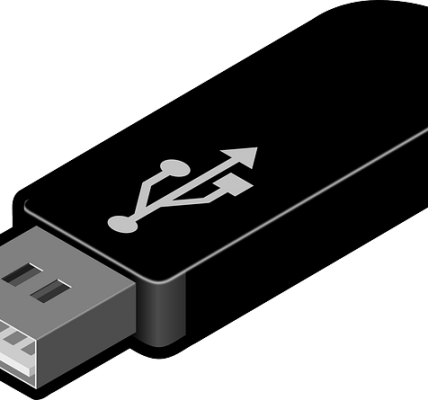
Smart devices are everywhere right now. From our healthcare industry to the educational sector, the world is rapidly moving towards automation. It is fair to say that the 21st century is the century of smart automation.
Some sectors, like logistics management, have much to gain by embracing the latest technology. Since there are several individuals involved in logistics management, keeping track of things can get confusing. Logistics managers often have to monitor the sourcing, collection, storage, and delivery of products. And matters can get even more delicate if the product is perishable.
What advantages can technology provide logistics?
It is vital that logistics management wholeheartedly embraces smart devices to make processes cost and time-efficient. And as products are most vulnerable to sabotage or theft during transportation, the use of the Internet of Things can heighten all operations’ security. That is why global companies spend more than $40 billion to improve delivery processes.
How can technology improve efficiency?
We must talk about the role of smart devices in improving productivity and efficiency. Since customers want items as fast as possible, companies must prioritize logistics to remain relevant. However, many minor processes are a part of the delivery process. And any delays in any of these stages can be disastrous for your business. Below are some of the main benefits that technology provides for logistics management.
Secure your products:
Cargo theft is one of the challenges facing a product supply chain. Most items are vulnerable to documentation fraud and theft when they are shipped internationally or nationally. It is also the most expensive issue that leading manufacturers face. Cargo theft amounts to almost $15 billion in losses per annum in the USA alone. The use of smart devices can minimize these losses by monitoring deliveries and storage.
Compliance with rules and regulations:
Many laws regulate the logistics industry. For instance, the Department of Transportation requires complete records of the hours of service (HOS) throughout a trip. Furthermore, recent legislation (the ELD mandate) has brought new developments in trucking companies’ regulation. According to the ELD mandate, engines manufactured in the year 2000 or later must provide records via Electronic Logging Devices. And failure to provide these records can incur heavy penalties and fines on the fleet service. Many companies have begun to use ELD devices for compliance with the mandate. The best eld device is user friendly and has many features to run the business efficiently. Therefore it is vital to choose the correct pick for your business.
Safety for your employee:
Smart devices can improve employee health and safety in the workplace. They can detect product issues long before employees have to interact with them, thereby preventing workplace injuries. Not only do these accidents have devastating effects on employees, but they can also reduce productivity. Some devices can reduce insurance premiums, as well. For instance, KeepTruckin offers AI-powered dash cams that provide video evidence for collisions. This proof can be incredibly useful in avoiding high insurance claims and punitive verdicts. It can also inform risky driver behavior to the employer for training purposes.
Product visibility:
Due to digital technology in the sector, companies can predict delivery times accurately. Doing so was virtually impossible as delays in orders due to route obstruction created massive backlogs in the supply chain. Moreover, companies were unable to forecast weather events that hinder delivery. The advancements in technology allow companies to improve transit viability and make processes more efficient.
Better storage environments for perishable items:
Some items like medicines and food products are sensitive to even a slight change in conditions. Therefore to avoid any damage to the cargo, logistic experts must keep truckers aware of any environmental changes. Furthermore, delicate machinery cannot withstand rough handling and vibration. So technology can help alert carriers about any such changes and prevent loss.
Efficient track of inventory:
Technology makes it easier for businesses to find out what they have and what they don’t have in stock. Small sensors can keep track of weather conditions in storage facilities. The use of smart technology also helps provide contactless rental services. Not only can this reduce operation costs, but it can also make the processing time efficient.
Making maintenance easier:
The trucking industry is the backbone of logistics. However, like all machines, trucks can break down due to daily wear and tear. And these breakdowns can cost manufacturers millions of dollars in transportation costs. While there is no way to avoid these incidents, we can certainly try to minimize the expense. Machine Learning systems can provide insightful data to predict any possible problems that may occur in the future. They can also bring down repair costs by setting alerts for preventative maintenance.
The future of delivery with smart devices:
So far, we have discussed the current technology you can use in your supply chain system. But, let us shift focus on innovations in the sector that will be commonplace soon. Therefore it is beneficial to be aware of the latest technology in logistics. Only then can you seamlessly incorporate the tech in the business.
Deliver products with drones:
Drone-based deliveries are the latest innovation in the logistics sector. Companies can improve their navigation systems and solve any last minute delivery problems with drones. Furthermore, drones can make delivery cheaper and reduce the burden on the workforce. Amazon is already developing drones to make contact-less deliveries possible soon. The new Prime Air feature will deliver packages weighing up to 5 pounds within 30 minutes of order creation.
Use of driverless cars:
The trucking industry is going through a crisis. According to the American Truckers Association, there will be a shortage of truckers shortly. More than 174,500 drivers are due to retire by 2024. And with no chances of an influx of a younger workforce, the industry will struggle to meet consumer needs in the future. But, driverless cars can be a game-changer in the logistics business. Driverless vehicles can work on short and long routes. Some companies are already experimenting with automated driving. Indeed, Kroger is using autonomous cars to make last-mile grocery deliveries to customers since December 2018.
Conclusion:
Like all sectors, the logistics industry is also evolving. New devices are making processes efficient. With the help of tech, logistics managers are in control of every second of the transportation process. They can track inventory conditions and monitor safety guidelines. Furthermore, they can also improve product visibility and present freight theft. Some smart devices can make it easier to maintain fleets and avoid downtime. Innovation like drone tech will only become more popular in the future, according to experts.










![Watch Video Now on xiaohongshu.com [以色列Elevatione perfectio X美容仪 perfectio X 全新仪器黑科技了解下]](https://www.techburgeon.com/wp-content/uploads/2019/07/perfectiox-singapore-150x150.jpg)
